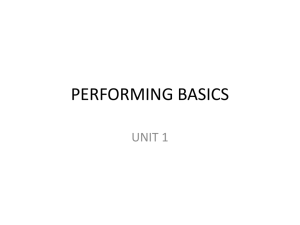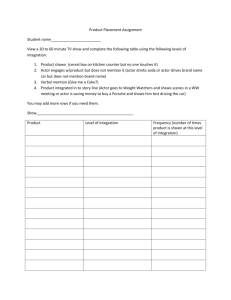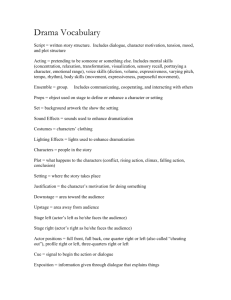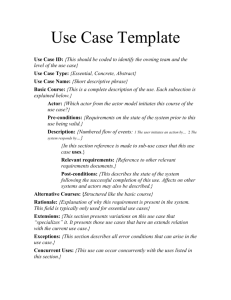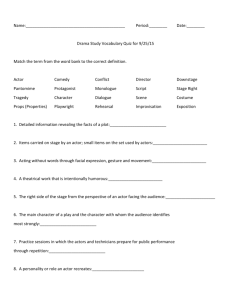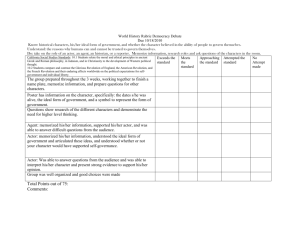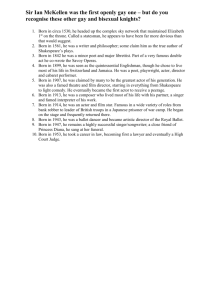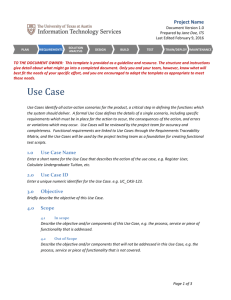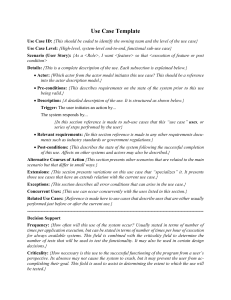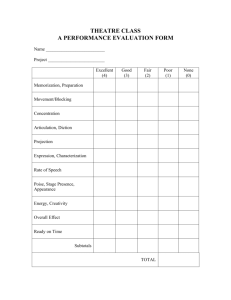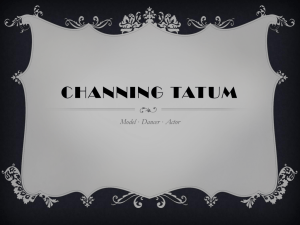Play and Performance In the beginning of this course I was struck by
advertisement
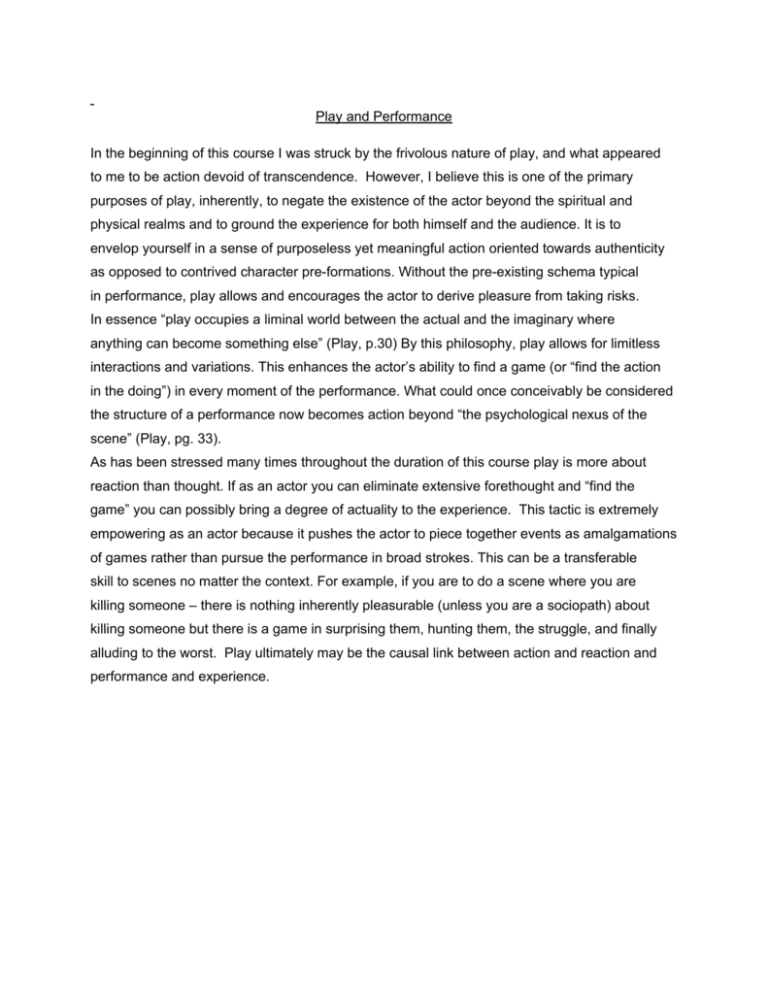
Play and Performance In the beginning of this course I was struck by the frivolous nature of play, and what appeared to me to be action devoid of transcendence. However, I believe this is one of the primary purposes of play, inherently, to negate the existence of the actor beyond the spiritual and physical realms and to ground the experience for both himself and the audience. It is to envelop yourself in a sense of purposeless yet meaningful action oriented towards authenticity as opposed to contrived character pre-formations. Without the pre-existing schema typical in performance, play allows and encourages the actor to derive pleasure from taking risks. In essence “play occupies a liminal world between the actual and the imaginary where anything can become something else” (Play, p.30) By this philosophy, play allows for limitless interactions and variations. This enhances the actor’s ability to find a game (or “find the action in the doing”) in every moment of the performance. What could once conceivably be considered the structure of a performance now becomes action beyond “the psychological nexus of the scene” (Play, pg. 33). As has been stressed many times throughout the duration of this course play is more about reaction than thought. If as an actor you can eliminate extensive forethought and “find the game” you can possibly bring a degree of actuality to the experience. This tactic is extremely empowering as an actor because it pushes the actor to piece together events as amalgamations of games rather than pursue the performance in broad strokes. This can be a transferable skill to scenes no matter the context. For example, if you are to do a scene where you are killing someone – there is nothing inherently pleasurable (unless you are a sociopath) about killing someone but there is a game in surprising them, hunting them, the struggle, and finally alluding to the worst. Play ultimately may be the causal link between action and reaction and performance and experience.
